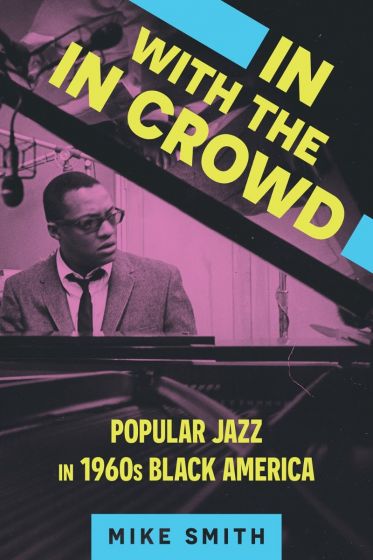In with the In Crowd: Popular Jazz in 1960s Black America
Mike Smith
Details
Most studies of 1960s jazz underscore the sounds of famous avant-garde musicians like John Coltrane, Ornette Coleman, and Albert Ayler. Conspicuously absent from these narratives are the more popular jazz artists of the decade that electrified dance clubs, permeated radio waves, and released top-selling records. Names like Eddie Harris, Nancy Wilson, Ramsey Lewis, and Jimmy Smith are largely neglected in most serious work today. Mike Smith rectifies this oversight and explores why critical writings have generally cast off best-selling 1960s jazz as unworthy of in-depth analysis and reverent documentation.
The 1960s were a time of monumental political and social shifts. Avant-garde jazz, made by musicians indifferent to public perception aligns well with widely held images of the era. In with the In Crowd: Popular Jazz in 1960s Black America argues that this dominant, and unfortunately distorted, view negates and ignores a vibrant jazz community. These musicians and their listeners created a music defined by socialization, celebration, and Black pride.
Smith tells the joyful story of the musicians, the radio DJs, the record labels, and the live venues where jazz not only survived but thrived in the 1960s. This was the music of everyday people, who viewed jazz as an important part of their cultural identity as Black Americans. In an era marked by turmoil and struggle, popular jazz offered a powerful outlet for joy, resilience, pride, and triumph.
Mike Smith (Dublin, Ohio) has been a performer, writer, arranger, and educator for more than forty years. He is coordinator of Jazz Studies at The Ohio State University, where he conducts the jazz ensemble, jazz fusion combo, and teaches jazz styles and jazz pedagogy classes.
EVENT Sunday, November 3, 11 am – 12:15 pm
Book Talk: In With the In Crowd, Mike Smith before the film
Max Roach: The Drum Also Waltzes

